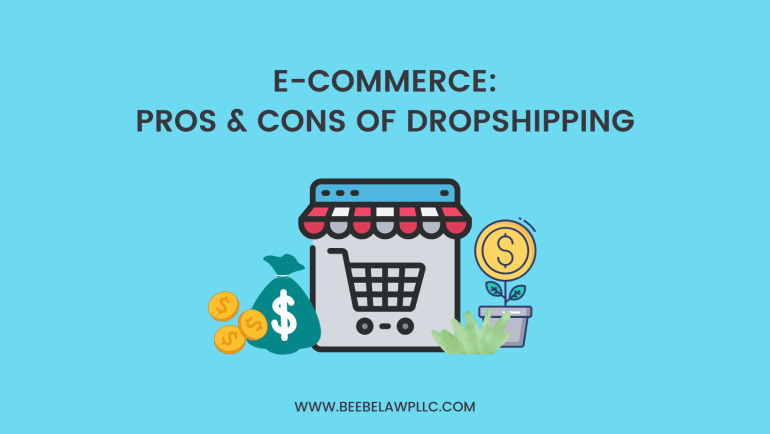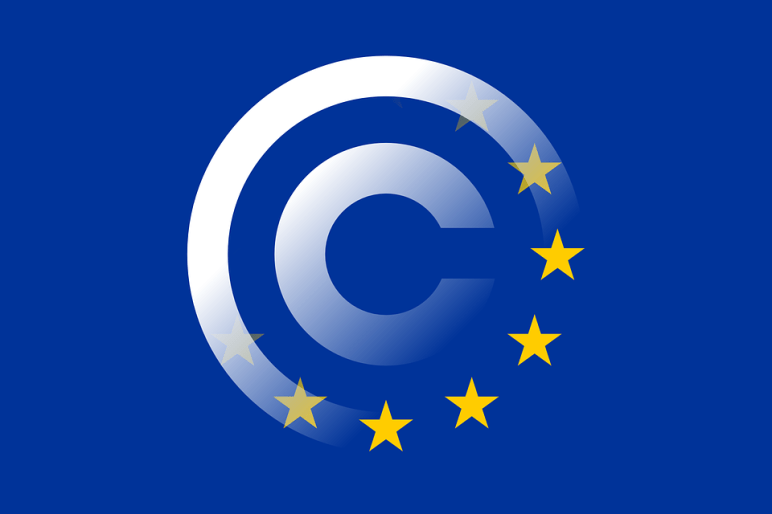The “kitchen sink approach” isn’t an uncommon complaint claim strategy when it comes to filing lawsuits against platforms. Notwithstanding decades of precedent clearly indicating that such efforts are doomed to fail, plaintiffs still give it the ole’ college try. Ironically, and while this makes more sense with pro se plaintiffs because they don’t have the same legal training and understanding of how to research case law, pro se plaintiffs aren’t the only ones who try it … no matter how many times they lose. Indeed, even some lawyers like to get paid to make losing arguments. [Insert the hands up shrug emoji here].
Plaintiff: Susan Lloyd
Defendants: Facebook, Inc.; Meta Platforms, Inc.; Mark Zuckerberg (collectively, “Defendants”)
In this instance Plaintiff is a resident of Pennsylvania who suffers from “severe vision issues”. As such, she qualified as “disabled” under the Americans with Disabilities Act (“ADA”). Ms. Lloyd, like approximately 266 million other Americans, uses the Facebook social media platform, which as my readers likely know, is connected to, among other things, third-party advertisements.
While the full case history isn’t recited in the Court’s short opinion, it’s worth while to point out (it appears anyway with the limited record before me at this time) that the Plaintiff was afforded the opportunity to amend her complaint multiple times as the Court cites to the Third Amended Complaint (“TAC”). According to the Court Order, the TAC alleged claims violations of:
Plaintiff alleged problems with the platform – suggesting it inaccessible to disabled individuals with no arms or problems with vision (and itemized a laundry list of issues that I won’t cite here … but suffice it to say that there was a complaint about the font size not being able to be made larger). [SIDE NOTE: For those that are unaware, website accessibility is a thing, and plaintiffs can, and will, try to hold website operators (of all types, not just big ones like Facebook) accountable if they deem there to be an accessibility issue. If you want to learn a little more, you can read information that is put out on the Beebe Law website regarding ADA Website Compliance.]
Plaintiff alleged that the advertisements on Facebook were tracking her without her permission … except that users agree to Facebook’s Terms of Service (which presumably allow for that since the court brought it up). I’m not sure at what point people will realize that if you are using something for free, you ARE the product. Indeed, there are many new privacy laws being put into place throughout various states (e.g., California, Colorado, Utah, Virginia and Connecticut) but chances are, especially with large multi-national platforms, they are on top of the rules and are ensuring their compliance. If you aren’t checking your privacy settings, or blocking tracking pixels, etc., at some point that’s going to be on you. Technology gives folks ways to opt out – if you can locate it. I realize that sometimes these things can be hard to find – but often a search on Google will land you results – or just ask any late teen early 20s person. They seem to have a solid command on stuff like this these days.
Plaintiff also alleged that Defendants allowed “over 500 people to harass and bully Plaintiff on Facebook.” The alleged allegations of threats by the other users are rather disturbing and won’t be repeated here (though you can review the case for the quotes). However, Plaintiff stated that each time that she reported the harassment she, and others, were told that it didn’t violate community standards. There is more to the story where things have allegedly escalated off-line. The situation complained about, if true, is quite unsettling … and anyone with decency would be sympathetic to Plaintiff’s concerns.
[SIDE NOTE: Not to suggest that I’m suggesting what happened, if true, wasn’t something that should be looked at and addressed for the future. I’m well aware that Facebook (along with other social media) have imperfect systems. Things that shouldn’t be blocked are blocked. for example, I’ve seen images of positive quotes and peanut butter cookies be blocked or covered from initial viewing as “sensitive”. On the other hand, I’ve also seen things that (subjectively speaking but as someone who spent nearly a decade handling content moderation escalations) should be blocked, that aren’t. Like clearly spammy or scammer accounts. We all know them when we see them yet they remain even after reporting them. I’ve been frustrated by the system myself … and know well both sides of that argument. Nevertheless, if one was to take into account the sheer volume of posts and things that come in you’d realize that it’s a modern miracle that they have any system for trying to deal with such issues at all. Content moderation at scale is incredibly difficult.]
Notwithstanding the arguments offered, the court was quick to procedurally dismiss all but the breach of contract claim because the claims were already dismissed prior (Plaintiff apparently re-plead the same causes of action). More specifically, the court dismissed the ADA and Rehabilitation claim because (at least under the 9th Cir.) Facebook is not a place of public accommodation under Federal Law. [SIDE NOTE: there is a pretty deep split in the circuits on this point – so this isn’t necessarily a “get out of jail free” card if one is a website operator – especially if one may be availing themselves to the jurisdiction of another circuit that wouldn’t be so favorable. Again, if you’re curious about ADA Website Compliance, check out the Beebe Law website]. Similarly, Plaintiff’s Unruh Act claim failed because the act doesn’t apply to digital-only website such as Facebook. Plaintiff’s fraud and intentional misrepresentation claims failed because there wasn’t really any proof that Facebook intended to defraud Plaintiff and only the Terms of Service were talked about. So naturally, if you can’t back up the claims, it ends up being a wasted argument. Maybe not so clear for Pro Se litigants, but this should be pretty clear to lawyers (still doesn’t keep them from trying). Plaintiff’s claims for invasion of privacy, negligence, and negligent infliction of emotional distress failed because they are barred by Section 230 of the Communications Decency Act, 47 U.S.C. § 230. Again, this is another one of those situations where decades of precedent contrary to a plaintiff’s position isn’t a deterrent from trying to advance such claims anyway. Lastly, the claims against Zuckerberg were dismissed because Plaintiff didn’t allege that he was personally involved or directed the challenged acts (i.e., he isn’t an “alter ego”).
This left the breach of contract claim. Defendants in this case argued that Plaintiff’s claim for breach of contract should be dismissed because the Court lacks diversity jurisdiction over the claim because she cannot meet the amount in controversy. As the Court explains, “28 U.S.C. §1332 grants federal courts’ original jurisdiction over civil actions where the amount in controversy exceeds $75,000 and the parties are citizens of different states.” Indeed, they are parties are from different states, however, that requirement that the amount in controversy is to exceed $75,000 is where Plaintiff met an impossible hurdle. As discussed prior, users of Facebook all agree to Facebook’s Terms of Service. Here, Plaintiff’s claim for breach of contract is based on conduct of third-party users and Facebook’s Terms of Service disclaim all liability for third-party conduct. Further, the TOS also provide, “aggregate liability arising out of.. .the [TOS] will not exceed the greater of $100 or the amount Plaintiff has paid Meta in the past twelve months.” Facebook having been around the block a time or two with litigation have definitely refined their TOS over the years to make it nearly impenetrable. I mean, never say never, BUT…good luck. Lastly, the TOS precludes damages for “lost profits, revenues, information, or data, or consequential, special indirect, exemplary, punitive, or incidental damages.” Based upon all of these issues, there is no legal way that Plaintiff could meet the required amount in controversy of $75,000. The Court dismissed the final remaining claim, breach of contract, without leave to amend, although the court did add in “[t]he Court expresses no opinion on whether Plaintiff may pursue her contract claim in state court.” One might construe that as a sympathetic signal to the Plaintiff (or other future Plaintiffs)…
There are a few takeaways from this case, in my opinion:
- Throwing garden variety kitchen sink claims at platforms, especially ones the size of Facebook, is likely to be a waste of ink on paper on top of the time it takes to even put the ink on the paper in the first place. If you have concerns about issues with a platform, engage the services of an Internet lawyer in your area that understands all of these things.
- Properly drafted, and accepted, Terms of Service for your website can be a huge shield from liability. This is why copying and pasting from some random whatever site or using a “one-size-fits-all” free form from one of those “do-it-yourself” sites is acting penny wise and pound foolish. Just hire a darn Internet lawyer to help you if you’re operating a business website. It can save you money and headache in the long run – and investment into the future of your company if you will.
- Website Accessibility, and related claims, is a thing! You don’t hear a lot about it because the matters don’t typically make it to court. Many of these cases settle based upon demand letters for thousands of dollars and costly remediation work … so don’t think that it can’t happen to you (if you’re operating a website for your business).
Citation: Lloyd v. Facebook, Inc., Case No. 21-cv-10075-EMC (N.D. Cal, Feb. 7, 2023)
DISCLAIMER: This is for general information only. This is not legal advice nor should it be relied upon as such. If you have concerns regarding your own specific situation, be sure to reach out to an attorney in your jurisdiction who may be able to advise you of your rights.











